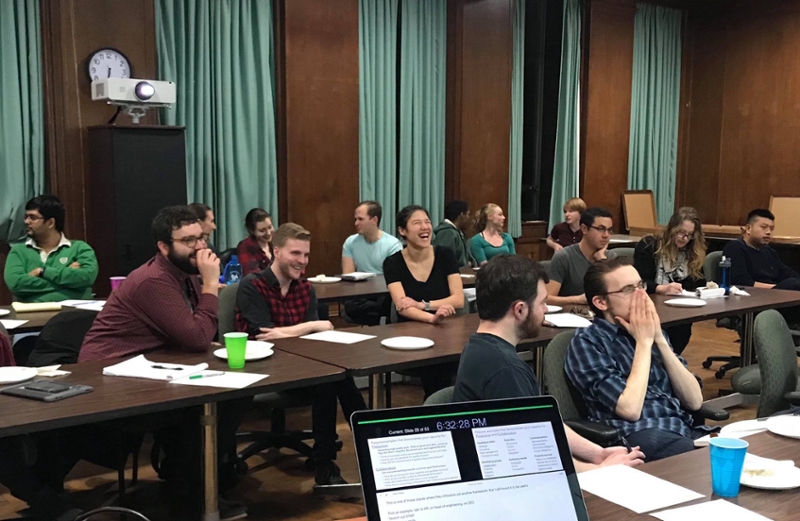Ph.D. Students Take Charge of Goals with New Committee
By Amber Lucas
Many students in Ph.D. programs often feel that their education experience is out of their hands once they begin their career at a University, but last semester graduate students in the Department of Biological Sciences at Carnegie Mellon University decided to take a deeper ownership of their Ph.D. training by forming the Biology Graduate Student Action Committee (BioGSAC). BioGSAC is devoted to taking suggestions and concerns of the graduate student body and turning those ideas into actionable items that improve the quality of the entire student educational experience, including the student’s quality of life and community interaction while in the program at CMU. This idea evolved after the Elizabeth Jones Annual Retreat, where advice from Aaron Mitchell, Biological Sciences Department Head, encouraged students to take charge in facilitating positive changes in the department.
“I feel that our students know better than anyone how departmental decisions and policies affect them, so they are best positioned to explain that kind of impact” said Mitchell. “I am excited by developing new ideas and processes that represent our entire departmental community that strengthen our research and training missions, as well as our quality of life. In order to improve things effectively, it is essential that all stakeholders have a voice.”
With only one semester in the books for this young organization, they have already achieved several goals that aim to further enrich the graduate experience in the department. Most notably, BioGSAC has been able to secure funding from the department for guest speakers from industry and an annual career development workshop, providing students with a better and broader idea of the types of jobs available with a biology Ph.D. and what skills to build to get them. With the number of Ph.D. graduates dramatically on the rise and little increase in the availability of faculty positions, understanding alternative career paths and how to get those jobs is instrumental to post-graduation success. The first career development workshop event held in January was a booming success, attracting not only biology Ph.D. students but even Ph.D. students from chemistry, biomedical engineering, and physics.
“We're providing training in missing skills, such as communication, business strategy, negotiation, and how to find a job. We're preparing students for the realities of the job market, along with opportunities they might not know about.” said Ardon Shorr, a member of the BioGSAC career development committee who led the first career development workshop. “This group is just beginning, but already BioGSAC has expanded my professional network, given me the opportunity to learn professional skills, and organize as a team to get things done."
Success of the BioGSAC organization lies in no small part within the willingness of the department faculty and administration to listen to the needs of the students and support changes that will positively impact our personal and scientific growth. Successful, happy students translate to a successful, happy department, and while change is never easy, and it just shows that the biology department at Carnegie Mellon University is a truly special place where no one settles for easy, but instead strives for constant improvement and excellence.
